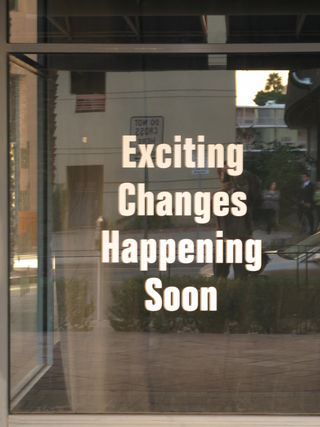During a session called "Sustainability and Growth: How Can a City Develop Sustainably When its Identity is Built on Growth?" at the American Meteorological Society convention, a development expert named Grady Grammage colorfully dispelled some myths and revealed some little-known truths about Phoenix.
One myth: Phoenix is unsustainable because it imports water. Virtually all cities import water, Grammage pointed out, even New York, not to mention countless other necessities for urban life, such as food, fuel, and steel. Phoenix arguably has a more stable supply of water than numerous other cities, such as San Diego, because Phoenix imports its water from numerous sources, albeit at great distances.
In Grammage’s view, a bigger question is “habitability,” and he brought up the Urban Heat Island Effect, which he thinks, based on surveys, will drive more Phoenicians out of the state by 2020 than those who move in from other states. Grammage reports that when he expressed this view, various public officials and “water buffaloes” — water experts — in Phoenix scoffed.They think Phoenix could support as many as 10 million people — more than twice its current population.

But the climactic trends may have already been trumped by the economic trends. According to a huge and thoroughly-substantiated front-page story in the Arizona Republic, Phoenix is already losing population — thousands of people — probably due to the economy. Foreclosures are up a mind-blowing 534 percent from last year, while water hook-ups, trash collection, and sales tax revenues are all down sharply. Substantial numbers of buildings have no water service, indicating abandonment, and sales tax revenues are down 8 percent. Even crime has declined.
Already, the Phoenix city government has to try and close a 22 percent revenue gap of about $270 million, and if the state finds that the city is losing residents, it will cut its allocation of tax returns still further. Perhaps this is why the mayor, Phil Gordon, scoffed at the reports of population decline.
“The growth of Phoenix, like all cities in the Valley, has slowed significantly. But Phoenix’s net growth is still positive, both in jobs and population,” he said.
Cognitive dissonance, anyone? Or, is it just garden variety denial?
In any case, something is in the wind … as reflected in a sign I saw this morning in an empty storefront in downtown Phoenix. Guess we’ll find out what kind of wind it is soon enough.

